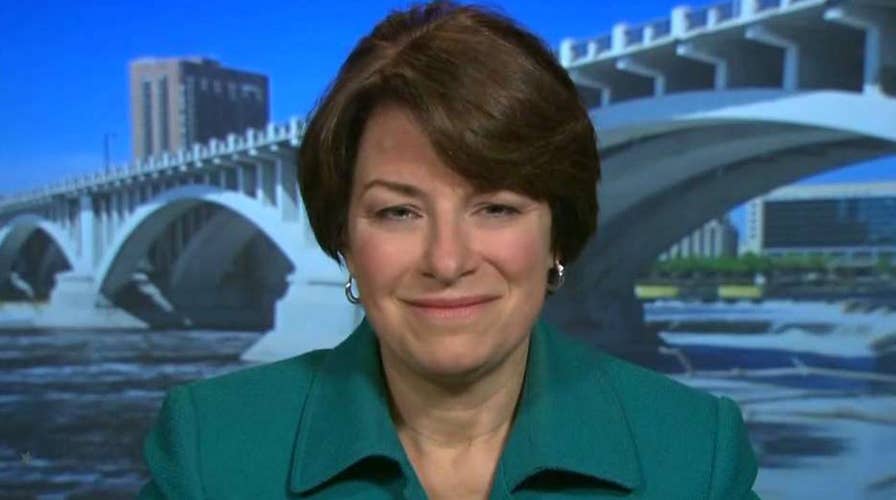Sen. Amy Klobuchar on nation's toxic political climate
Democratic senator from Minnesota on efforts to cool the heated rhetoric
Senate Republicans must make significant headway this week on efforts to repeal ObamaCare before their self-imposed July 4 deadline -- as Democrats plot ways to grind the chamber’s daily business to a halt to protest the GOP plan and closed-door process.
“Doing this behind closed doors is actually not what we did,” said Minnesota Sen. Amy Klobuchar, a member of the Democratic Party that in 2009 passed ObamaCare, formally known as the Affordable Care Act.
Democrats are upset that the GOP replacement bill is being drafted by 13 Republican senators and that leaders of the GOP-controlled Senate won’t allow Democrats to participate in the process.
The GOP-House passed its repeal bill in May. And the Senate intends to pass its version without a single Democratic vote -- by using a parliamentary process known as budget reconciliation.
How far Senate Democrats will go to slow the chamber’s day-to-day business, particularly hearings, remains unclear. Senate Majority Leader Chuck Schumer, D-N.Y., and other members of his leadership team have declined to talk to Fox News about such plans.
However, Fox has confirmed that they intend to at least slow the process with extended speeches on the chamber floor, as first reported by Politico.
The pressure is on Republicans to repeal or at least fix ObamaCare.
President Trump and essentially every congressional Republican campaigned on a promise to replace the 2010 health care law, struggling under increasing premium costs while offering Americans fewer policy choices.
Republicans need 51 votes to pass the legislation and put the bill on Trump’s desk to sign.
However, they have only 52 senators, with several expressing concerns -- particularly those in poorer states -- about supporting a bill that could increase premium costs for tens-of-millions of Americans, as the House bill is projected to do.
Among them is Kentucky GOP Sen. Rand Paul, who last week raised the issue of the emerging Senate bill including “new entitlement, like the House version, according to The Hill newspaper. One is a refundable tax credit to help Americans pay for their premiums. And the other is a so-called “stabilization fund” that would lower the cost of premiums.
Trump celebrated the House passing its version. And he appears encouraged by the Senate’s progress.
However, during a meeting with senators last week the president reportedly called the House version “mean” and suggested the upper chamber add more money to the bill, apparently to lower premium costs and cover more people.
But the Senate must also craft a bill that saves $113 billion to pass the measure by a simple majority, which gives them little room for such improvements.





